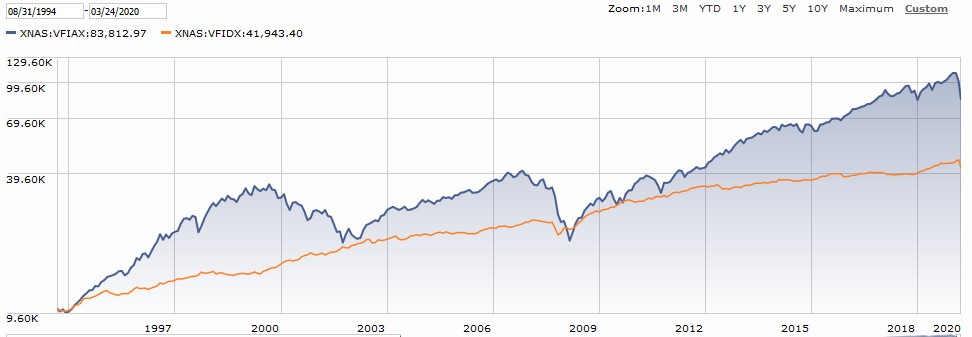That’s just one sector. Not all of us owning equities are invested in S&P500 directly or only in the S&P500 which represents large cap stocks. Many of us own mid caps, small caps, international, REITs, etc. and that’s just for the equity portion, we also own fixed income including cash, and perhaps even different durations of bonds.
So I’m not sure why you are trying to convince people that they aren’t reasonably diversified.
+1
Diversification guarantees you nothing in the short term. Even if the assets you hold have nearly 0 correlation over the long term, in shorter timeframes they can indeed move together. Many people ignore that fact when they happen to move in the same direction and that direction is positive, but then freak out if they happen to go down together. 0 long term correlation means that at any given time they can move together (in either direction) or in opposite directions. Though sometimes there are some trends that can happen, but are by no means guaranteed to happen. For example, I hold intermediate treasuries. Long term correlation to stocks is nearly zero. However, during the last few recessions, when stocks took a dive, treasuries went positive. And they are doing so during this crisis as well. This is not guaranteed to happen, but I'm glad that it is again.

As you might imagine, once a crisis is over, they often suffer a loss. I can live with that.
There are many different types of diversification. Within stocks, one can diversify across geographies, size, sectors, value, growth, etc. Within cash, there is cash, CD's, Money Markets, Treasuries, inflation protected bonds, as well as geography. Then there are alts, gold, other precious metals, directly held real estate, etc. Then there is time diversification for those who use some sort of systematic tactical asset allocation.
In the long term, yes, diversification works. The price to be paid for lower volatility is possibly lower long term returns.
For the mathematically inclined, there's even a metric somebody concocted to calculate the amount of diversification in a portfolio which is helpful for comparing two portfolios. It's called the Diversification Ratio (R). It's the weighted average of the sum of the standard deviation of each asset in your portfolio all divided by the standard deviation of the total portfolio, all measured over the same, long timeframe.
https://www.allaboutalpha.com/blog/2011/03/27/the-most-diversified-portfolio/
